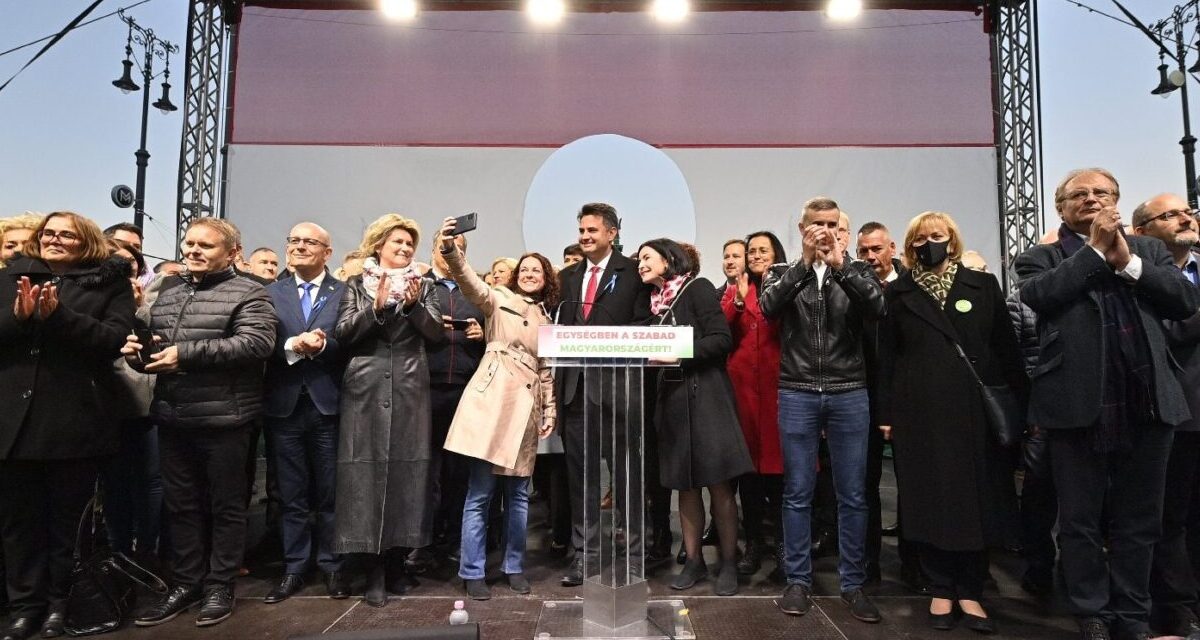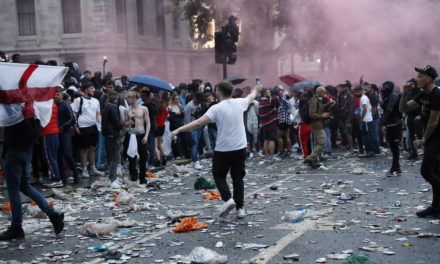Boris Kálnoky, head of the MCC Media School, analyzed the state of the forces running in the upcoming Hungarian elections, primarily the opposition, and how the public evaluates the parties' activities in an opinion piece published in the columns of Corvinák.
Viktor Orbán has been governing Hungary since 2010, i.e. for 12 years. He was prime minister between 1998 and 2002. Anyone who is 25 today cannot remember a period without Viktor Orbán. They can get bored with this and the Hungarian youth, above all the urban youth who have seen the world, long for someone to be at the head of the country again. But it's not just about young people, because all those Hungarians who like to complain about how everything is so bad (and complaining is a national sport in this country) are exactly complaining about how everything is so bad - it happens to be under Orbán's leadership.
really says that anything was better before him, not even those who can't bear to see Orbán's face when he appears on the screen. Under the former socialist government, the country suffered economically above all. The disaffected - and this means roughly half of the population - are still faced with a difficult question: who else would lead the country? Only two new faces emerged among the possibilities, and certainly none of them would be displayed in the shop window without further ado.
One of the prime ministerial candidates is Péter Márki-Zay , who wants to bring the seemingly absurd alliance of six opposition parties to victory. In this alliance, two parties form the defining axis: the former communists (known as the Democratic Coalition, DK) and the former racists of the right-wing Jobbik party. Yes, the latter say that they used to have anti-Semitism and anti-Gypsyism and wanted to leave the European Union. Today, however, they have completely changed, they are Konrad Adenauer - this is how the world is changing.
Péter Jakab does not particularly resemble Adenauer, nor does he speak like Adenauer. He walks around in jeans and a leather jacket and likes to pretend to be a young man from the countryside with a heart of gold. Of course, most Hungarians are realists and do not believe in those with hearts of gold. Last fall, the opposition held primaries to select a candidate for prime minister. Jakab hoped to make it to the final vote, but failed miserably.
In addition to Márki-Zay, the other face is the one who would actually govern in the event of an election victory, because it would not be Márki-Zay, even if he could become prime minister. Márki-Zay does not have his own party, so members of other parties in the parliament should elect him prime minister. In the event of an election victory, these parties would dictate the content of the government program and not Márki-Zay. And the strong man of the strongest party is Ferenc Gyurcsány , the leader of the DK and former prime minister (he was in government between 2004 and 2009), who cannot stand Márki-Zay.
This is because, contrary to expectations, Márki-Zay won the primary election of the opposition alliance last October. In the primary election, they wanted to nominate a prime minister candidate from among the party leaders of the opposition alliance, but Márki-Zay, who started from the sidelines, won instead, even though he barely contributed to the financing and organization of the primary election. Márki-Zay is the mayor of the small town of Hódmezővásárhely. The newly minted leader of the opposition declared on the night of the election that we defeated the opposition! By this he probably meant Gyurcsány, so we can assume that he doesn't really like the new boy either.
Most Hungarians happen to dislike Gyurcsány , and that is exactly why Márki-Zay won the primary. They don't like him because in 2006 he talked in front of his comrades in a closed circle about how they won the elections: "we lied morning, noon and night". This led to protests. Gyurcsány marched policemen without identification marks, who attacked the protesters with rubber batons, tear gas and rubber bullets. It was the worst manifestation of police violence since communism. With this, he kicked the dust with the voters. In 2008, under Gyurcsány's leadership, Hungary was the first EU member state to need a rescue package from the International Monetary Fund.
Gyurcsány is the richest member of the Hungarian Parliament. His wife, Klára Dobrev, a member of the European Parliament, is perhaps even richer than him. The couple's wealth comes from the period when real estate was privatized by the former communists. Dobrev's grandfather, Antal Apró, was the iron fist of Moscow in the Central Committee of the Hungarian Communists. His former villa (400 square meters) is now owned by Klára Dobrev. Gyurcsány therefore has a difficult task and his wife, who wanted to be the party's candidate for prime minister, also has no easy task when she wants to address the voters. Márki-Zay won against him in the primary election and this caused cheers all over the country, at least among those who want a new government but do not like the old opposition. They thought that finally new winds were blowing and here was the new face of the opposition!
The cheering has now died down, and it's because of Márki-Zay. The Hungarians didn't really know him, but today they got to know him. He travels the country, gives one interview after another and is happy to sit in front of his computer to talk to his constituents online for up to an hour and a half. And in such cases, the cart often runs away with him, at least he often says something that he is forced to say later that he didn't mean or maybe he didn't say.
This was the case, for example, when he compared Fidesz voters to mushrooms, who are kept in the dark and fed with manure. This is also a bit embarrassing because it should actually address the disappointed Fidesz voters. He believed that the coronavirus pandemic had caused the death of many old Fidesz voters, which would improve the opposition's chances. This is embarrassing because he calls himself a "conservative Catholic" and therefore his statement seemed quite sacrilegious.
Speaking of the Catholic: Márki-Zay came out in favor of same-sex marriage. In Germany, these two statements might fit together, but not in Hungary. This is also embarrassing because he wants to win over Christian voters. Speaking of the "conservative Catholic" statement: according to him, "Jesus was left-wing." So what, is he a conservative and against Jesus? He said that the opposition represents and supports communists and fascists. He probably didn't want to say it like that and didn't mean it like that, but it still came out of his mouth. This was embarrassing in several respects, not least because he was thinking of his strongest allies, Gyurcsány's DK and Péter Jakab's right-wing Jobbik.
Since 2013, Orbán has limited the utility costs of the population by decree. This brought him the election victory in 2014. From there, the population pays less for energy than elsewhere in Europe. Márki-Zay said that the overhead costs should be reduced by showering less. This is so sad that Márki-Zay now appears in public most of the time accompanied by a spokesperson and gives much shorter speeches. The considerable enthusiasm of opposition fans died down in October. Some of the old bikers of the socialists have already started to demand that Márki-Zay be replaced as a candidate for prime minister , as was the László Békesi .
The Fidesz ruling party's routine and rock-hard political communication naturally delights in its speeches. In the election campaign, instead of their own loud slogans, they switched to Márki-Zay's statements, which of course are often slightly distorted, but they just have to be repeated constantly so that everyone becomes aware of them.
Today, the question voters face has also changed. Now they have to answer whether they hate Orbán so much that they want to vote him out of power despite Márki-Zay and Gyurcsány, no matter what the cost?
The opposition has been leading the polls for months. Today, according to a survey by the Závecz polling institute (made at the beginning of February), Fidesz is once again in the lead with 49 percent against the opposition's 46 percent. Still, we can expect a close result, because the opposition united for the first time. But it does not create a truly unified and harmonious impression.
Source: Corvinas
Author: Boris Kálnoky
(Cover photo: MTI/Zsolt Szigetváry )













